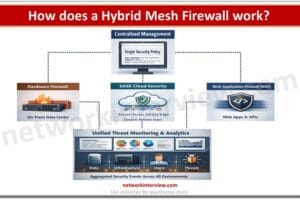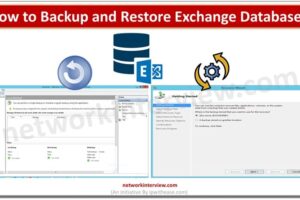
The Link Between Data Analytics and Business Growth
Businesses of all types and sizes have one aim in common: to not just survive but thrive. To accomplish this, they need data from the digital information that is now the lifeblood of every organization.
New and young businesses, in particular, need to collate, manage and use data effectively, as it can be vital to their business growth and stability when competing against more mature competitors.
Having the ability to gather and store data efficiently – including information from across the business venture and the marketplace – is just the starting point of this essential business function, however, data is not very useful without having the skills in place to analyze it and apply its findings moving forward.
That is why there is such a high demand for professionals in data analytics, whether it is to work in-house for bigger employers or serve on agency teams that smaller businesses can commission to optimize their digital information.
Why does business growth now depend so much on having access to data analytics, and what are the options for bringing in the right level of skill and knowledge?
Data Analytics Overview
Technology and data science have made it possible to constantly gather an unfathomably large amount of digital information.
Even if a person was capable of comprehending how much data is collected each day around the world, the figure would have increased by the end of the day. It is expressed in terms of millions of terabytes, growing to substantial numbers of zettabytes in the years ahead.
The Internet of Things, cloud computing, increasingly advanced programming and constantly improving connectivity between devices are contributing to humankind’s ability to develop and collect vast amounts of unique data.
Data analytics encompasses the tools, processes and skills used to create usable information from this data. This includes information that can underpin actionable tasks and confident decision-making in the world of business.
Types of Business Data Analytics
Here is a look at the main types of business data analytics.
Forensic Data Analysis
Gathering and using information from your past operations and output can be an invaluable way of building a stronger and more resilient future for your business. For example, you can gather data on how well certain machinery performed or how well a team worked together to reach key performance indicators.
If you have built a fully integrated digital workplace, you can track the arrival of your inventory, its usage throughout your production processes, and its use in goods going out to customers. If you are a service provider, your forensic analysis could look at factors such as billable hours and profit or compare client satisfaction levels to your retention rate.
From all of this, your new or fledgling business can start to map out trends and anomalies. Forensic data analysis can then help you to
- Identify ways to do things more quickly and profitably and with less waste.
- You can also spot changes you can make to optimize resource usage, including assets such as machinery, vehicles and staff.
- Time and motion studies and improved layouts for production lines and warehouses are just some of the reports you can generate using forensic data analysis.
- Another example would be a data mining exercise to look at all the stock a company purchased and determine whether it is generating unnecessary waste or holding too much inventory and tying up its working capital.
Real-time Data Analysis
One of the main reasons digital workplaces are so vital to all types of businesses is that they allow for strong levels of transparency and control. Businesses can draw data from any point across their operations, from anywhere in the world, at any time of the day.
This can facilitate swift and confident responses to problems and opportunities as data transparency brings more versatility and flexibility to a business.
An example of this can be seen with a company sending out consignments of goods that are time-sensitive as a result of being perishable or urgent in their nature. Imagine real-time data analytics indicate their transport systems have hit a serious problem, putting this order and their customer relationship at risk.
A business with good data visibility and control could send a replacement consignment out using alternative means while managing its customers’ expectations. For businesses that were not keeping a close eye on such issues, the outcome may be very different.
Diagnostic Analytics
This is a more in-depth and specialist form of data analytics that can be used to map and control a specific process or piece of equipment. It involves having the ability to conduct highly detailed data discovery and mining and then correlating the results to look for specific issues and trends.
An example of diagnostic analytics in action would be an engineering department maintaining a remote and isolated site or piece of machinery, such as equipment used on gas and oil rigs. Using this type of data analysis, it is possible to spot early warning signs that something is going wrong, and it is the ideal way to stay ahead of any repair or maintenance tasks.
Predictive Data Analysis
This branch of data analytics often requires an even greater level of skill from the professional you employ or the data analysis agency you commission. It is possible to use software and skills to use data to predict the future. This is a highly respected and ever more important branch of data science.
Digital information can be sorted and analyzed to extract trends and predictions with a remarkable level of accuracy. Predictive data analysis can underpin far more confident business decision-making. It can also save your business time and money and reduce the risk of costly mistakes.
Marketing & Sales Data Analytics
This is possibly the area of data science that impacts the greatest number of people worldwide. Every day, you receive messages from companies that are stimulated by the data being gathered on you and an analysis of what would most interest you.
In terms of new and growing businesses, this branch of data analytics can ensure you consistently match the expectations and preferences of your customers. Are you offering the right products at the right price and getting them delivered to your customers efficiently?
You can use data analytics to be far more accurate in your marketing and sales activities. For example, it can ensure any online ad spending is directed toward your ideal customer in terms of geography, age and preferences.
If you run an eCommerce business, this type of data analysis can be vital in making sure your online marketing efforts are working well from end to end, including having a website that generates and retains visitors successfully.
Cybersecurity & Data Analytics
As a company, you will also want to ensure any work done on gathering, storing and analyzing digital information always includes measures to protect against data breaches.
You can also employ the services of specialists in cyber security data analysis. This could be especially relevant if you hold a lot of sensitive information or operate in a sector that is prone to cyber-attacks.
In this situation, your data analyst could explore any potential gaps, overlaps or leaks. They can also test your data security and systems to help you find improvements. That role is subtly different from ethical hacking.
How can a Data Analyst help?
We have already touched on many of the ways that businesses can use data analysis for everything from everyday efficiency and control to underpinning growth and development.
However, to achieve all these aims, you don’t just need the right technology; you also need the right skills and insights. That is why you still need qualified data analysts alongside the hardware and software needed for efficient and effective data management.
- Analysts in this field work with employers or clients to determine what digital information is most relevant and valuable.
- They provide solutions and implement the data systems that are most adept at generating usable results.
- Legislation is being enacted worldwide, dictating how data can be gathered, stored and used, and you can use data analysis expertise to remain compliant.
- Another reason to bring in an expert is that there is a highly diverse range of data analysis techniques and tools available that requires a great deal of skill involved in knowing which methodology and technology is best suited to each task.
How a Data Analyst matches business needs?
It is clear how business analytics helps in business, and it is important to show how professionals in this field prepare to apply their knowledge and skills in a practical and beneficial way.
If you are considering a career in data analysis, whether you want to be a generalist or a specialist in this technological niche is up to you.
- You also need to be ready to work with the latest technology, tools, and modern programming languages, but you must be willing and able to innovate, grasp business issues quickly, and show leadership skills.
- The latter ability – leadership – is required because professionals in data analysis often need to lead teams and work in close collaboration with customers or colleagues from other departments.
- In addition, data analysts need confidence when presenting their findings to a non-technical audience in a way that makes their findings logical, understandable and applicable to their business operations.
- They may also be required to help instruct clients or colleagues on how to use fundamental data management and analysis skills to drive the business forward.
Are Data Analysts easy to find?
Although these professionals are crucial in unlocking business growth and development, recruiting the right data analysts for your organization may not be an easy task.
Because so much of modern life depends on data science, the demand for professionals in this field is considerable. According to the U.S. Bureau of Labor Statistics, between 2021 and 2031, there will be a 36 percent increase in data science employment, including analytical roles.
The Advantages of Data Analysis
To sum up why new and growing businesses need data analysis, here is a rundown of the advantages it provides when you bring in a skilled professional in this field:
- Better business transparency and control
- The ability to monitor and assess your business end-to-end
- Finding new routes to business improvements and ways to increase productivity and profit
- The potential to spot issues and obstacles quickly and respond decisively
- Better understanding of your customers
- Greater ability to be versatile in responding to marketing and sales opportunities
- Greater insight into customer satisfaction and retention
- More confident research, development and business decision-making
- More assured problem-solving abilities based on data clarity and control
- Access to methods of automating systems and compliance
- More effective control of your financial health
Continue Reading:
Unlocking the Power of Big Data Analytics: A Comprehensive Guide
Top 10 Data and Analytics Trends



